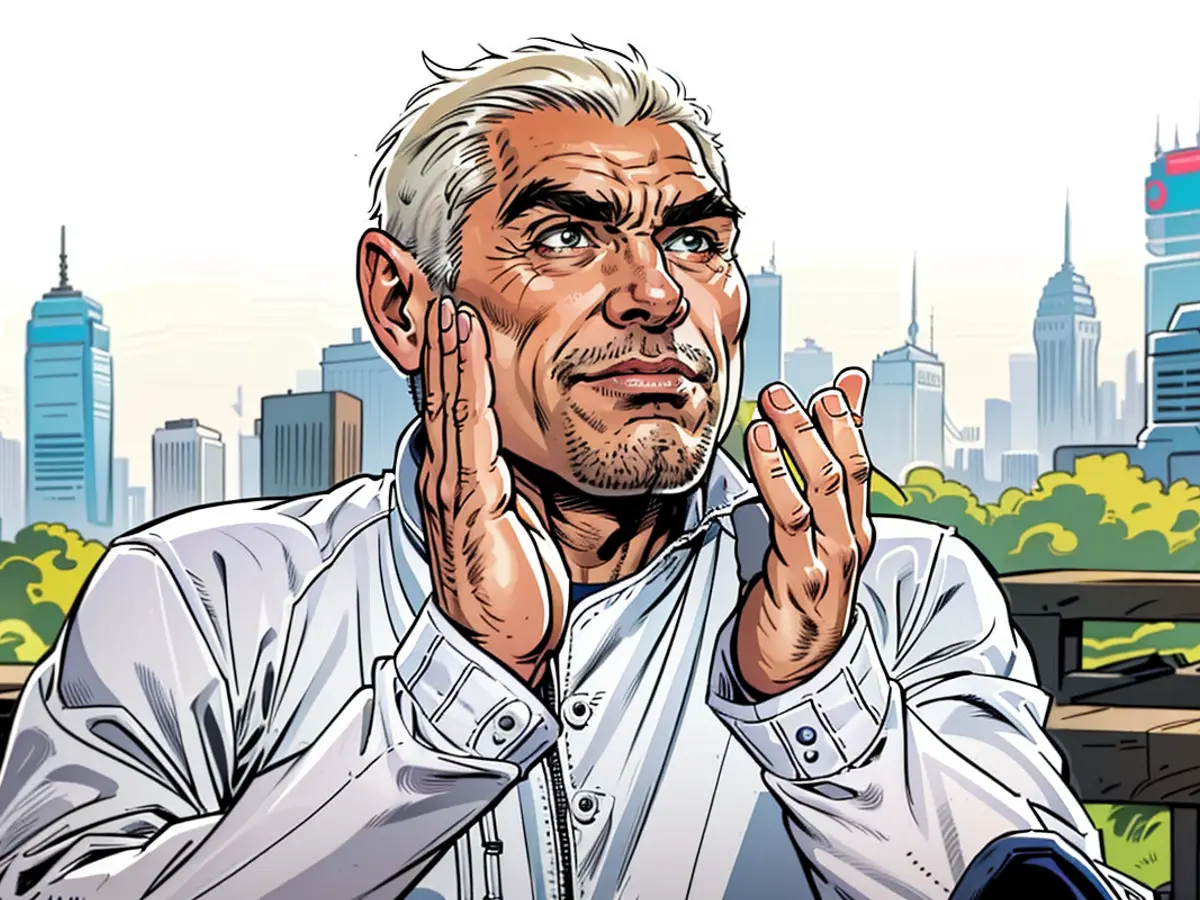Why Hoeneß's "Arthritis Bus" is reminiscent of the Magath drama
Two weeks ago, Uli Hoeneß warned with a pithy remark that the FC Bayern had to sell players to make room for new ones. But those who thought Hoeneß was just joking with his "joint bus" comment might be mistaken.
"I've already been told to stop," the "Kicker" quoted then-coach and manager Felix Magath at the start of 2010. At the time, Magath was acquiring players en masse on the transfer market, leaving not only critical media observers but also many royal blue fans bewildered and astonished. Just prior to this, Magath had revealed that he had obtained a blank check from the boss to become active again: "I spoke with Clemens Tönnies on New Year's Day, and he provided me with a little money for reinforcements."
Magath then indeed went on a spending spree, signing six new players in a matter of days: Alexander Baumjohann, Edu, Besart Ibraimi, Peer Kluge, Bogdan Müller, and Tore Reginiussen. Some history-conscious football fans may have heard of one or two of these names, but most of these players would soon fade into obscurity at Schalke. Magath struggled, unsurprisingly, with an inflated royal blue squad. At its peak, nearly 40 players with professional contracts were on the Schalke pitch.
Too many, as even Magath admitted, but there was a problem: Despite the high-profile contracts of players like Gerald Asamoah or Albert Streit, it was almost impossible for other clubs to sign them due to the high salaries. Consequently, the actual interest of other clubs remained limited, despite the club publicly encouraging transfers. Those who might be reminded of the current situation at a German top club are not alone in that.
A small, improvised interview with impact
About two weeks ago, Uli Hoeneß spoke again. At the 75th anniversary of SV Seligenporten in the Upper Palatinate, the FC Bayern legend, as he has so often done, spoke openly and freely about his club. A small, improvised interview with impact, as the supervisory board member of FC Bayern once again made public and directly addressed things that might have been better kept behind closed doors.
One thing that Uli Hoeneß brought up, despite all the subsequent reassurances from Eberl, will likely not have pleased the sporting leadership: "We now have three additional players who cost a total of 125 million. 125 million! And if none of them leave, we'll soon be able to travel to games with a joint bus." And indeed, the last sentence contained a word that would later make headlines in the media: the now legendary "joint bus."
However, as some media representatives assumed, this is not a "completely new word" in football - at least not for Uli Hoeneß. The former all-powerful Bayern manager had already taken a jab at the BVB leadership in 2018: "You have a whole bunch of advisors now. Soon, you'll have to travel with a joint bus if everyone wants to come along. I hope it goes well." But more interesting is where, or rather from whom, Uli Hoeneß adopted this word into his vocabulary.
"That's when I'd rather let you go!"
In October 2012, the book "Football Summit" by Manni Breuckmann was published. At the time, the former WDR commentator, along with Harald Schmidt, Claudia Roth, and Uli Hoeneß, spent many hours discussing the beautiful game. And on that day, the former Bayern boss shared a wonderful anecdote: "One more thing about Magath. When Clemens Tönnies fired him at Schalke, he said to him: 'If you keep going like this with your squad of 45 players, we'll need an articulated bus for the team. I'd rather let you go!'"
Here it is again, the famous "articulated bus." And even though the current situation at FC Bayern Munich is obviously not comparable to the circumstances at Schalke in 2010, and Uli Hoeneß himself is making statements like "You have a big head start with us" to Max Eberl and Christian Freund, showing that the situation is under control and being handled with care ("We don't have a money printer at FC Bayern"), this one word should not be overlooked at this point.
Especially not when considering the emotional side of Uli Hoeneß and his honest approach to the current problems. Because for FC Bayern, the clock is ticking every day, feeling like it's speeding up a bit more each time. And even if they could afford a whole fleet of articulated buses at Säbener Straße, they'll likely prefer to invest that money in players. After all, they wouldn't want to put Uli Hoeneß in a similar situation to the one Clemens Tönnies faced with Felix Magath many years ago.
Despite Uli Hoeneß's reassurances about FC Bayern Munich's current squad situation, his comment about potentially needing a "joint bus" for their players echoes Felix Magath's experience at Schalke in 2010, when Magath had an inflated squad due to mass transfers and struggled with high salaries.
In response to Hoeneß's "joint bus" comment, some might recall that Hoeneß had previously used the term to criticize Borussia Dortmund's large coaching team in 2018, implying they were too reliant on numerous advisors.








